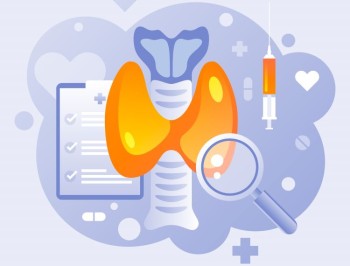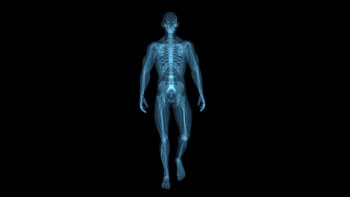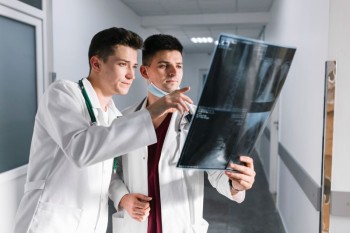
Iodine-131, a radioactive isotope of iodine, finds crucial applications in nuclear medicine, particularly in imaging and treating thyroid conditions.
Iodine-131 Scan (I-131 Radiotherapy) in India with Cost
Iodine-131 Scan (I-131
Radiotherapy) in Detail: Targeting Thyroid Disorders with Precision
In the realm of nuclear medicine, the Iodine-131 (I-131) Scan and Radiotherapy stand as powerful tools, primarily employed in the diagnosis and treatment of thyroid disorders. This comprehensive guide aims to illuminate the significance, procedure, and therapeutic insights provided by I-131 scans and radiotherapy, offering a detailed understanding of their applications in thyroid healthcare.
Introduction
Iodine-131, a radioactive isotope of iodine, finds crucial applications in nuclear medicine, particularly in imaging and treating thyroid conditions. The I-131 Scan and Radiotherapy are integral components in managing thyroid disorders, providing both diagnostic and therapeutic benefits.
Understanding I-131 Scan Imaging
Radioactive Iodine Uptake:
The I-131 Scan involves administering a small, controlled amount of radioactive iodine to the patient, either orally or through injection. The radioactive iodine is selectively taken up by the thyroid gland.
Gamma Camera Imaging:
A gamma camera captures images of the distribution and uptake of radioactive iodine within the thyroid. This allows for the visualization of thyroid function and the identification of abnormalities.
Importance in Thyroid
Imaging
The I-131 Scan holds significant importance in thyroid healthcare:
Thyroid Imaging: Assessing thyroid function and
identifying abnormalities such as nodules or overactive thyroid glands.
Thyroid Cancer Staging: Aiding in the
staging of thyroid cancer by evaluating the extent of iodine uptake in thyroid
tissue.
Preparation for the
I-131 Scan
Preparation for an I-131 Scan may include:
Dietary Restrictions: Temporary
restrictions on iodine-rich foods to enhance the uptake of radioactive iodine.
Medication Adjustments: Temporary
cessation or adjustment of certain medications that may interfere with the scan.
Procedure: Mapping
Thyroid Function
Radioactive Iodine Administration: The patient receives a
controlled dose of radioactive iodine, typically in the form of a capsule or
liquid.
Uptake Period: The thyroid gland selectively
absorbs the radioactive iodine during a specific waiting period.
Gamma Camera Imaging: The gamma
camera captures images of the thyroid, displaying the distribution and
intensity of iodine uptake.
Assessment Areas in
I-131 Scan Imaging
I-131 Scans are employed to assess various aspects of thyroid health, including:
Thyroid Function: Evaluating the function of
the thyroid gland based on iodine uptake.
Thyroid Nodule Identification: Detecting
nodules or abnormalities within the thyroid tissue.
Thyroid Cancer Staging: Assessing the
extent of iodine uptake in thyroid cancer cells for staging purposes.
Benefits of I-131 Scan
Imaging
Precise Thyroid Imaging: Offers precise imaging of
thyroid function, aiding in the diagnosis of various thyroid conditions.
Thyroid Cancer Management: Plays a crucial
role in managing and staging thyroid cancer.
Non-Invasive Nature: A non-invasive
procedure that provides valuable diagnostic information without surgical
intervention.
Risks and Considerations
While the radioactive iodine used in I-131 Scans exposes patients to radiation, the benefits of accurate thyroid evaluation generally outweigh the risks. Pregnant women and nursing mothers may require specific considerations.
Radioactive Iodine
Therapy (I-131 Radiotherapy)
Therapeutic Application:
Beyond diagnostics, I-131 Radiotherapy involves using higher doses of radioactive iodine to treat thyroid conditions, especially thyroid cancer or hyperthyroidism.
Precision in Treatment:
The radioactive iodine selectively targets and destroys thyroid cells, providing a targeted therapeutic approach.
Clinical Applications of
I-131 Radiotherapy
I-131 Radiotherapy finds applications in various clinical scenarios, including:
Thyroid Cancer Treatment: Targeting and
destroying cancerous thyroid cells.
Hyperthyroidism Management: Regulating
overactive thyroid function through the destruction of thyroid tissue.
Benefits of I-131
Radiotherapy
Targeted Cancer Treatment: Offers a targeted approach
to treating thyroid cancer by selectively destroying cancer cells.
Hyperthyroidism Control: Effectively
manages overactive thyroid function by reducing thyroid tissue activity.
Risks and Considerations for I-131 Radiotherapy
I-131 Radiotherapy involves a higher dose of radiation and may have side effects, including temporary neck discomfort, nausea, and altered taste. Careful consideration of the patient's overall health and medical history is essential.
Expert Perspectives
Nuclear medicine specialists, endocrinologists, and oncologists collaborate to interpret I-131 Scan results and administer I-131 Radiotherapy, providing expert insights into thyroid health.
Technological Advancements
Ongoing advancements in nuclear medicine technology contribute to the refinement of I-131 Scans and Radiotherapy, enhancing diagnostic accuracy and therapeutic outcomes.
Patient Experience
While the I-131 Scan is generally well-tolerated, patients may experience mild discomfort during the uptake period. I-131 Radiotherapy, although involving a higher dose of radiation, is a targeted and effective treatment with manageable side effects.
Conclusion
In conclusion, the Iodine-131 Scan and Radiotherapy play pivotal roles in the comprehensive management of thyroid conditions. Whether for precise imaging or targeted therapy, these applications of I-131 contribute to informed decision-making and improved outcomes in thyroid healthcare.
Frequently Asked
Questions (FAQs) about Iodine-131 Scan and Radiotherapy
1. Is an Iodine-131 Scan painful or uncomfortable?
No, the Iodine-131 Scan itself is not painful. Patients might experience mild discomfort during the uptake period, but the scan is generally well-tolerated.
2. Are there any specific dietary restrictions before an I-131 Scan?
Yes, there may be temporary dietary restrictions on iodine-rich foods before the scan to enhance the uptake of radioactive iodine by the thyroid.
3. Can pregnant women undergo an Iodine-131 Scan?
Pregnant women should avoid Iodine-131 Scans due to potential risks to the developing fetus. It's crucial to inform healthcare providers if there's a possibility of pregnancy.
4. How long does the Iodine-131 Scan procedure take?
The entire procedure, including the uptake period and imaging, typically takes a few hours. Patients may need to return for additional imaging sessions on subsequent days.
5. What conditions can an I-131 Scan help diagnose?
I-131 Scans are instrumental in diagnosing various thyroid conditions, including hyperthyroidism, thyroid nodules, and thyroid cancer.
6. Is Iodine-131 Radiotherapy safe for cancer treatment?
Yes, Iodine-131 Radiotherapy is considered safe and effective for treating certain thyroid cancers. The radiation is targeted to the thyroid, minimizing impact on surrounding tissues.
7. What side effects can occur after I-131 Radiotherapy?
Typical side effects may involve brief discomfort in the neck, temporary nausea, and changes in taste. These reactions are generally manageable and diminish gradually.
8. How long should patients avoid close contact with others after I-131 Radiotherapy?
Patients may be advised to maintain a safe distance from others, especially pregnant women and young children, for a specified period to minimize radiation exposure.
9. Can Iodine-131 Radiotherapy be repeated if needed?
In some cases, a second or subsequent dose of I-131 Radiotherapy may be administered based on the response to the initial treatment and the progression of the thyroid condition.
10. Is Iodine-131 Radiotherapy the only treatment for thyroid cancer?
The choice of treatment depends on the type and stage of thyroid cancer. I-131 Radiotherapy is one of the options and may be used alone or in combination with surgery or other therapies.
11. Are there alternatives to Iodine-131 Radiotherapy for hyperthyroidism?
Yes, alternatives such as antithyroid medications or surgical removal of the thyroid gland (thyroidectomy) may be considered based on individual health factors and preferences.
12. How is the radiation dose in I-131 Radiotherapy determined?
The radiation dose is carefully calculated based on factors like the size of the thyroid, the type of thyroid condition, and the desired therapeutic effect.
13. Is Iodine-131 Radiotherapy covered by insurance?
Coverage varies among insurance providers. Patients are advised to check with their insurance companies to understand the extent of coverage for I-131 Radiotherapy.
14. Can individuals with iodine allergies undergo an Iodine-131 Scan?
Radioactive iodine used in the scan is different from stable iodine in foods, and the risk of an allergic reaction is minimal. However, it's essential to inform healthcare providers about any known allergies.
15. How soon can patients resume normal activities after an I-131 Radiotherapy session?
The duration of restrictions on activities varies but may include avoiding close contact with others for a few days. Patients should follow specific guidelines provided by their healthcare team.
These FAQs provide additional insights into the Iodine-131 Scan and Radiotherapy, addressing common queries that patients may have about these procedures. Always consult with healthcare professionals for personalized information and guidance based on individual health conditions.
(0)
Login to continue



